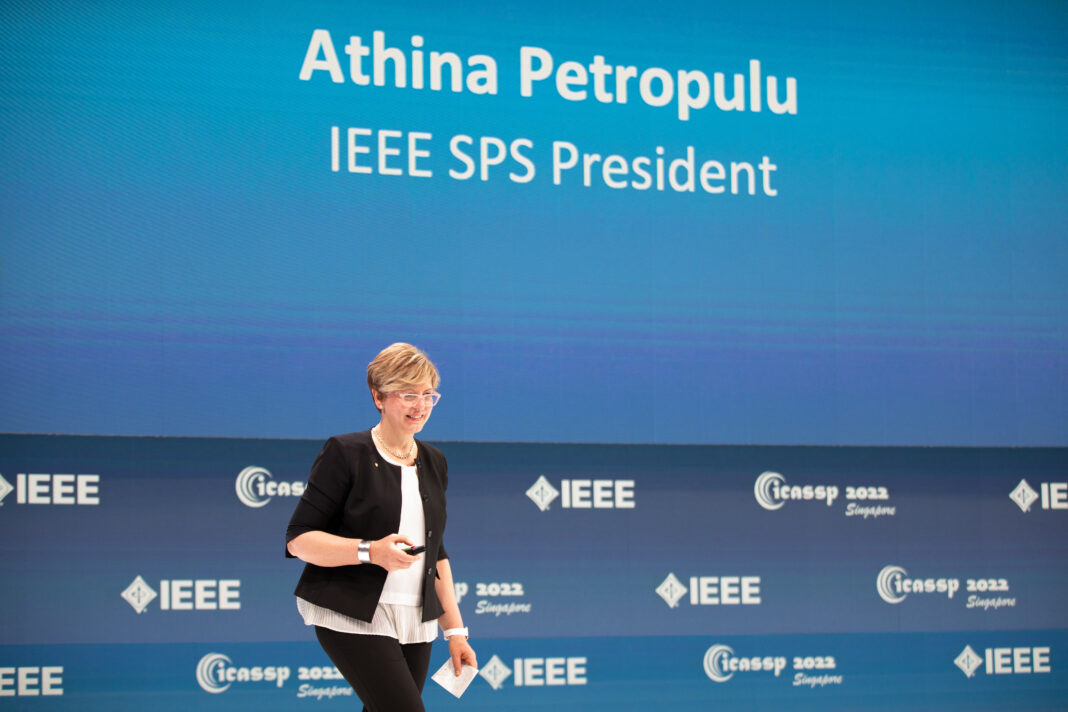By Leslie Krowchenko
When Dr. Athina Petropulu earned her diploma in Electrical Engineering in 1986 from the National Technical University of Athens, only 10 percent of her fellow graduates were women.
Nearly 40 years later, the figure has doubled.
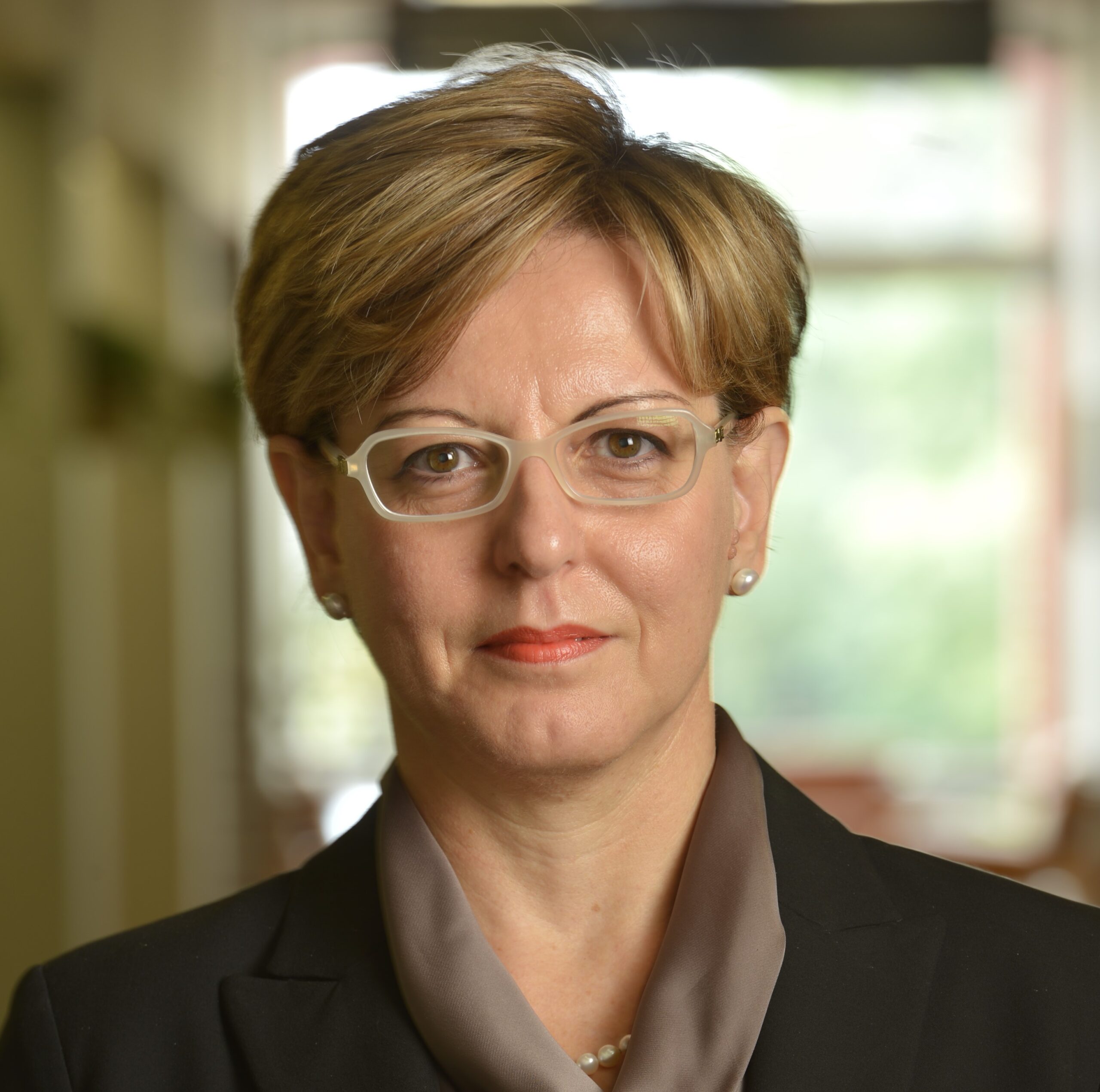
Dr. Athina Petropulu is a Distinguished Professor in the Electrical and Computer Engineering (ECE) Department at Rutgers, the State University of New Jersey. Her research spans the area of statistical signal processing and wireless communications and she supervises students completing their doctoral studies.
“Women represent untapped potential that has been overlooked around the world,” she said. “It is widely recognized by industry and academia that women bring a different point of view.”
Although women entering STEM (science, technology, engineering and mathematics) was seen by some as challenging, Petropulu viewed her decision as empowering. She always enjoyed the fascination of others in her native Kalamata, Greece with the complex nature of the books she was reading.
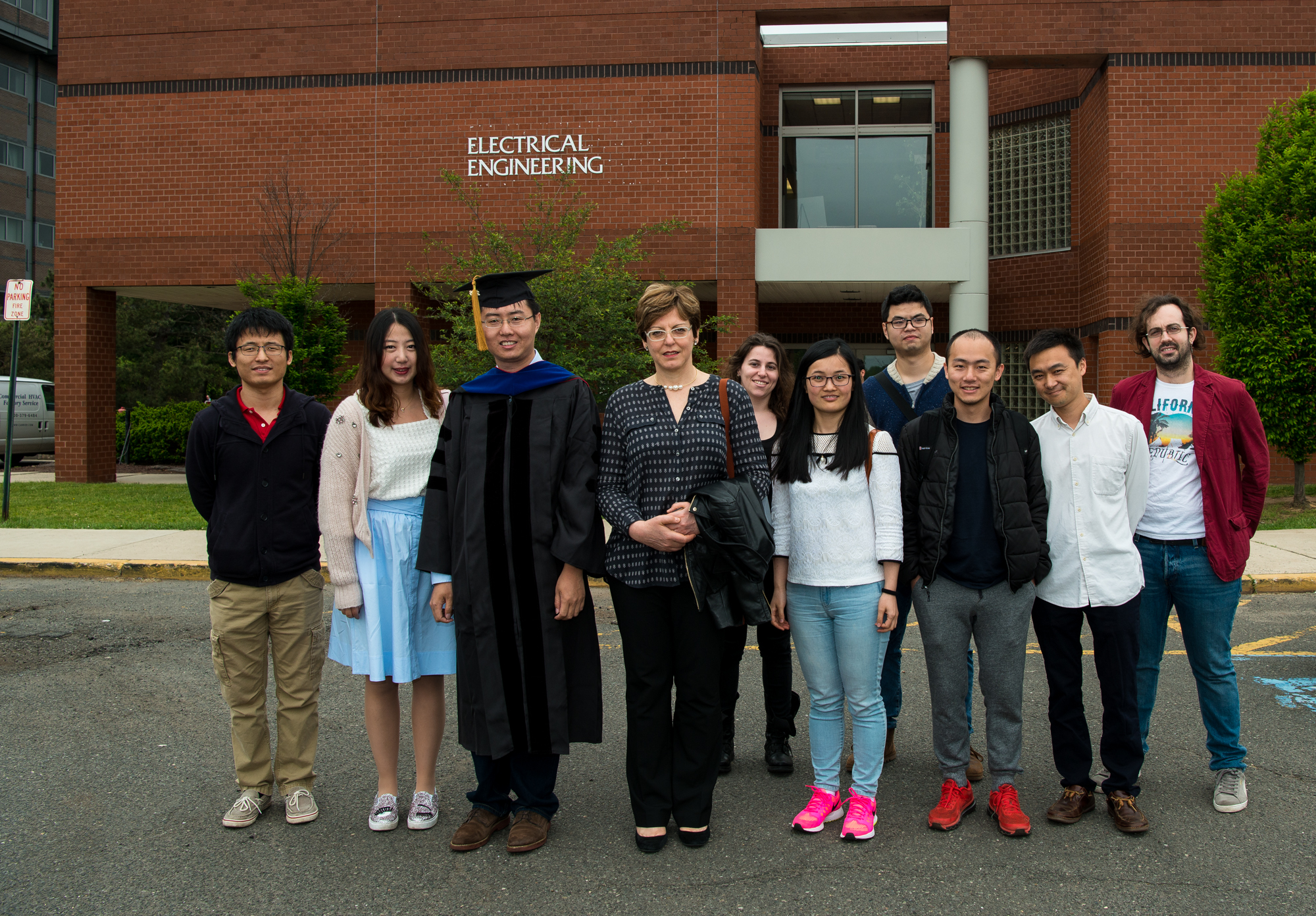
Petropulu completed her studies in the United States, earning M.Sc. and Ph.D. degrees in ECE from Northeastern University, Boston. Before joining Rutgers in 2010, she was on the faculty of Drexel University and held Visiting Scholar appointments at Supélec, Universite’ Paris Sud, Princeton University and the University of Southern California.
Petropulu’s research focuses on signal processing, developing algorithms that extract information from signals or improve their quality. The signals could be speech, images, communication or biomedical. Signal processing is used in various ways in medicine, such as interpreting breast ultrasound images.
“The ultrasound machine sends a sound beam into the tissue and the reflected signal contains information about the state of that tissue,” said Petropulu. “I design algorithms that process the reflected signal to determine whether there is a tumor inside the tissue and if there is, if it is benign or malignant.”

Her current research involves remote monitoring of vital signs. Rather than the need to attach sensors to the body, a radar device connected to the ceiling could be used to measure the vital signs of people in the room. Upon reflection on a person’s chest, the radar signal is changed by the small vibrations caused by the heartbeat and breathing. She designs algorithms to extract those changes and estimate heart and respiration rate.
“The radar signal can be designed to be like a spotlight – even if there are several people in the room, it would be directed to the particular person of interest,” she said. “One application of this work could be detection of sleep apnea.”
Her enthusiasm is contagious. At Rutgers, engineering students do not declare a specific major (such as chemical, civil, electrical, mechanical, biomedical, industrial, mat) until their sophomore year. While serving as chair of the ECE department from 2010-2016, she revamped the way her department was introduced to freshmen, from professors merely explaining credit requirements to emphasizing the exciting opportunities in research and industry available upon graduation.
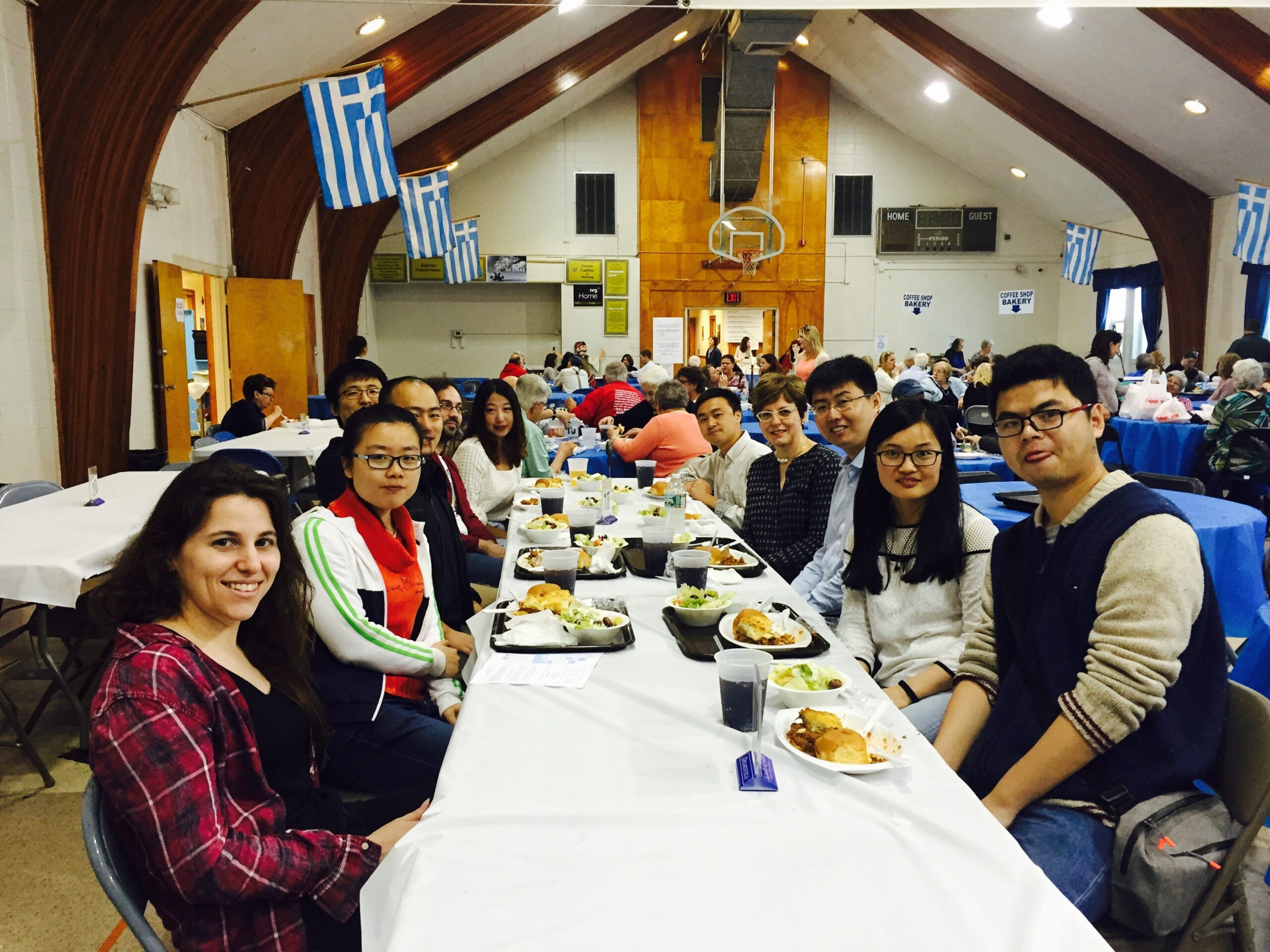
“Electrical Engineering at Rutgers is exploding – the number of students in the department is around 1,000, almost one-third of the entire School of Engineering” she said. “When I began, only 11 percent were women – as chair, I managed to increase it to 20 percent.”
The figure is still low, both in the United States and worldwide, and Petropulu works through organizations such as the Institute of Electrical and Electronics Engineers (IEEE) to introduce women to the field, specifically signal processing. Panels and workshops are hosted by professionals who share their experiences, help with apprentice programs and discuss ways to increase the number of women on university faculties.
“We are getting very good attendance and the presenters are exciting them about their potential,” she said. “We can’t do it alone – we are receiving support from men, who understand how important women are in the field.”
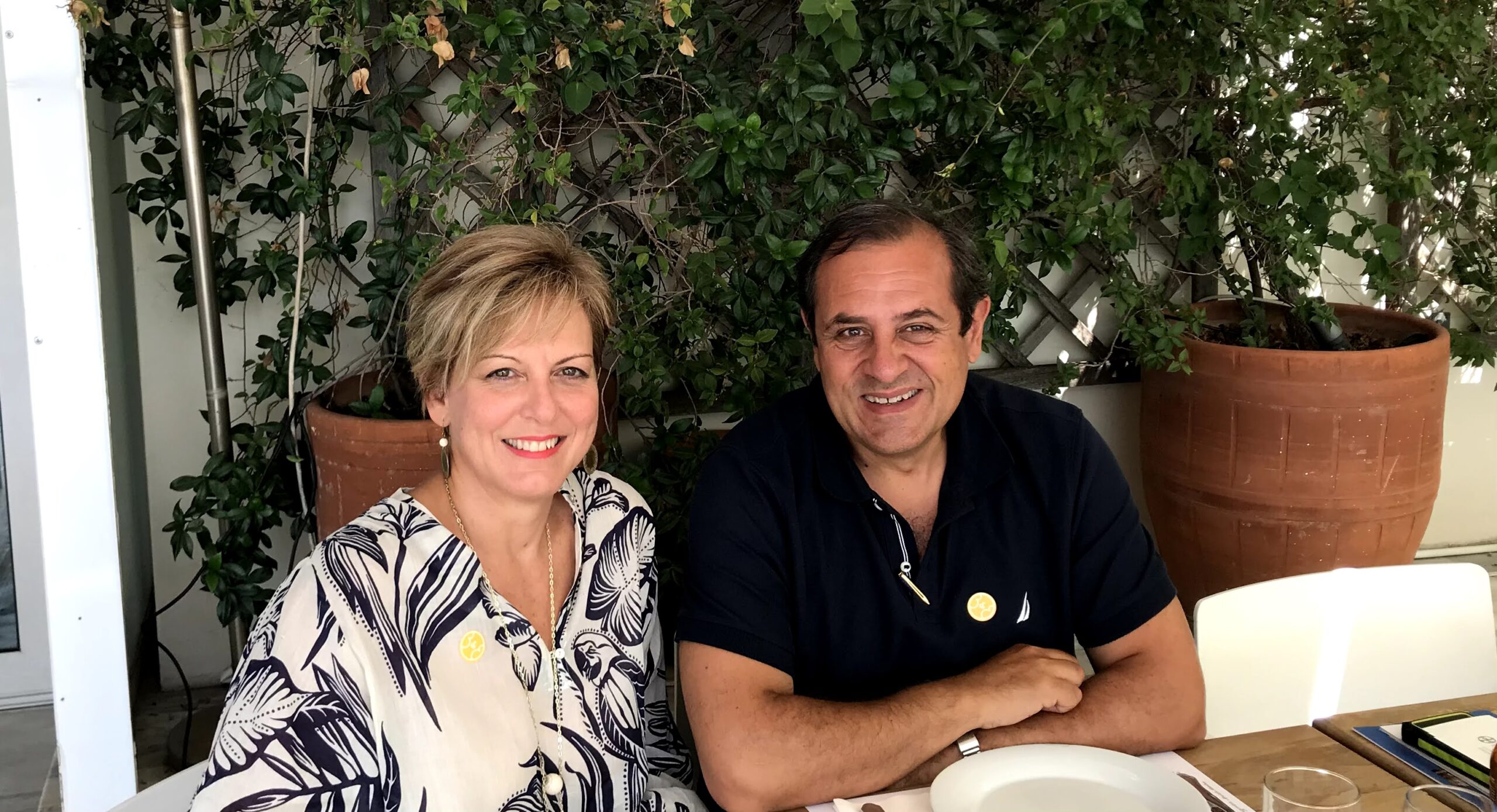
Petropulu mentors students through her interest in ECE and interaction with those completing Ph.D. programs. She likes math (a statement not everyone can make) and appreciates the chance to combine it with signal processing to formulate solutions for real world problems. One of her Ph.D. students, Greece native Dionysis Kalogerias, is currently an Assistant Professor of Electrical Engineering at Yale.
“I’ve had many students from all over the world who now enjoy successful careers in industry and academia,” she said. “It is very exciting to see them grow and mature into independent thinkers.”
Petropulu saved her greatest praise for her family. Her husband, Antonios, is a professor of Materials Engineering at Drexel; their daughter, Artemis, is completing post-doctoral studies in neuroscience at UCLA and their son, Takis, works in digital marketing at Amazon.
“I am very proud of them and I am also grateful for the encouragement and support I have received from them,” she said.





